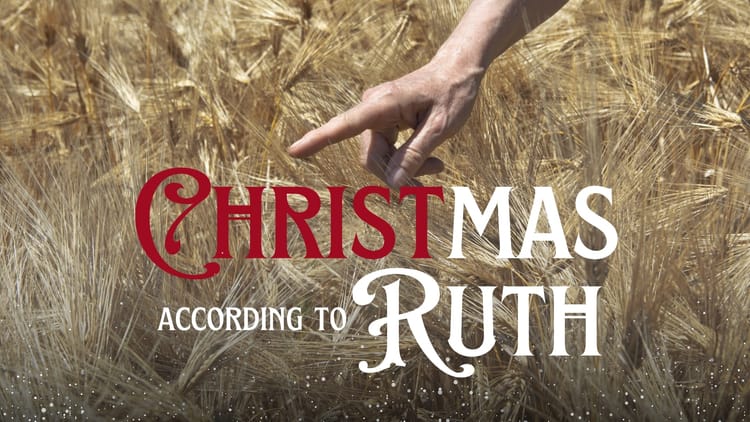Where God Lives (John 1:14, Colossians 2:12)

Every year it seems that a fire takes place right around Christmas that pushes a family out of their home. Today, a news article has reported a devastating incident in Massachusetts: a Holyoke apartment fire has left 6 individuals injured and 42 people without a home. The article says that the fire was started by an electric space heater in a third-floor apartment. We shudder to think about the idea of families being left homeless, especially this time of year.
This evening I’d like to think about this theme of homelessness for just a few minutes, but not the way you’d think. I’m not going to talk about the homeless in Toronto, although that is an important thing to think about. I won't discuss Joseph and Mary being sent to a manger, which is not their usual home. But it does relate to the theme. I want to talk about the concept of God being homeless, how Christmas addresses this, and what it means for us today.
So let’s look for just a few minutes at the big problem: the homelessness of God.
You may never have thought of God being homeless before, but it’s actually a big theme in the Bible. Some say that it is the major theme. So let me explain the problem as simply as I can.
The problem is not that God has never had a home here on earth. The problem is that God does, in some sense, dwell among his people on earth, but things keep getting wrecked. I know it’s funny to even think of God living or dwelling on earth, but that’s exactly what the Bible says that God does. God is meant to live among his people in relationship, blessing them, communing with them.
This is first mentioned in the book of Genesis. God creates the world; he pronounces it good. He creates man and woman, and then he dwells with them in the garden. He sees Adam’s needs and meets them; he walked and talked with them in the cool of the day. Adam and Eve were chosen by God to make the garden their home. Their task was to expand the garden until it encompassed the entire earth, making it a place where God's presence could be enjoyed by everyone.
You know what happened. Adam sinned, and all of humanity and all the earth became contaminated with sin. This made the earth unsuitable for God, which is why there are verses saying that God’s glory can never fully dwell on earth.
But you do have, in limited ways, God moving back to earth. God called Israel, and he commanded them to build him a Temple. The Temple became the dwelling place of God. The psalmist wrote of the Temple in Psalm 68, saying that it is “the mountain where God chooses to reign, where the LORD himself will dwell forever” (Psalm 68:16). You have pictures of God’s presence showing up in the Old Testament. The term for this is the Shekhinah, which refers to the presence of God in the Temple of Jerusalem.
Then the cloud covered the tent of meeting, and the glory of the LORD filled the tabernacle. Moses could not enter the tent of meeting because the cloud had settled on it, and the glory of the LORD filled the tabernacle. (Exodus 40:34-35)
However, even this dwelling place was insufficient for the greatness of God. If you go to Jerusalem today, you’ll discover that there is no Temple in Jerusalem anymore. in 586 BC, the Babylonians conquered Jerusalem and destroyed the Temple. It was later rebuilt, but God no longer lived there. One of the saddest passages of the Old Testament is Ezekiel 10, which describes the withdrawal of God’s presence from the Temple in Jerusalem. Slowly, reluctantly, God departs from his Temple and from his people.
Think about this. This means that earth becomes, literally, a Godforsaken place.
I was trying to think of the best way to capture what this would be like, and I thought of a picture of the Michigan Theater in Detroit. It’s a beautiful structure built on the site where Henry Ford built his first automobile. Look at it now. It’s got traces of its former glory, but it’s not like it’s supposed to be. It’s a symbol of what was supposed to be, but what now lies in ruins.
So the homelessness of God is a big problem. This world has become nothing compared to the way it’s supposed to be.
But then Christmas comes into the picture.
Greek literature has stories about the plight of humanity. The gods looked and saw that something needed to be done. But in Greek thought, the gods were removed, like spectators, looking at the problem the way an audience does in an amphitheater or a stadium. The gods look on and wonder what they can do to help, but they’re spectators, looking on from the outside.
But Christmas, according to Scripture, is about something entirely different. It’s about God moving back into this Godforsaken world, taking up residence once again.
John 1:14 says, “The Word became flesh and made his dwelling among us.” The word dwelling literally means tabernacled. The Word – the fullest expression and communication of God – has pitched his tabernacle and chosen to live among us, but this time not as a building. You can enter a building and walk around a building and touch a building, but you can’t talk to a building. This time God has chosen not to dwell among his people within a building; he’s chosen to dwell in a more personal way, as God in the flesh, Jesus, Immanuel, God with us.
In Colossians 1 and 2, Paul says something absolutely startling. Paul says that Jesus is the creator and sustainer of the entire cosmos. He holds everything together. There are 100 billion stars in our galaxy. Our galaxy is one of billions of galaxies in the observable universe. If you left today and travelled to the edge of the visible universe at the speed of light, it would take you 46.5 billion years. You can’t picture how vast this universe is. And Paul says that Jesus holds it all together.
For in him all things were created: things in heaven and on earth, visible and invisible, whether thrones or powers or rulers or authorities; all things have been created through him and for him. He is before all things, and in him all things hold together. (Colossians 1:16-17)
As someone has said, he keeps the cosmos from becoming chaos. Paul goes on to say that “God was pleased to have all his fullness dwell in him.” And then Paul goes on to say something that will blow you away: “For in Christ all the fullness of the Deity lives [dwell] in bodily form.” (Colossians 2:9)
Do you see what Paul is saying? The One who created this universe, and who holds it together every single day, the One who is God in very essence and very God, took on a human body and became a single cell implanted in the womb of a teenage girl. The fullness of God took on a human body and moved back into the earth.
Do you see how this relates to the theme of God’s homelessness? In Jesus, God has moved back into this Godforsaken world. He has not left it abandoned. Instead, he has come in his very flesh so that God himself is present with us in history. Christmas is about the hope we have that God has once again chosen to dwell with his people. This world is not Godforsaken after all.
There’s more to the story, by the way. Revelation promises that one day God will make his permanent home with us once again.
But let’s conclude as we think about what this means for us this Christmas.
First, let’s realize what we have in Jesus. The baby born in a manger at Christmas is not a cute baby. He’s the Lord of the Universe. We’re tempted to look to other things all the time, thinking that we need more than Jesus. When we realize who Jesus is, that changes everything. When you see Jesus, you have seen God. You don’t need anything or anyone else. Paul writes: “For in Christ all the fullness of the Deity lives in bodily form, and in Christ you have been brought to fullness. He is the head over every power and authority” (Colossians 2:9-10). Where do you want to go for anything else? Where else would you turn?
Second, let’s stand amazed at how determined he is to make his dwelling place among us. In Jesus, we see God’s relentless pursuit of his people. He is determined to be present among us to bless. In Jesus, he has given himself to us wholly. He has not stood back as a bystander. He has come to earth to establish his presence among us.
This should lead us to amazement and to worship. Downhere sings:
Lowly and small, the weakest of all
Unlikeliness hero, wrapped in his mothers shawl
Just a child
Is this who we’ve waited for?
Cause how many kings, stepped down from their thrones?
How many lords have abandoned their homes?
How many greats have become the least for me?
How many Gods have poured out their hearts
To romance a world that has torn all apart?
How many fathers gave up their sons for me?
So come, let us adore Him, the God who is not homeless, the God who has chosen to literally move in amongst us, the creator and sustainer of the world who lay in a manger – the One who was born to die so we could live.





